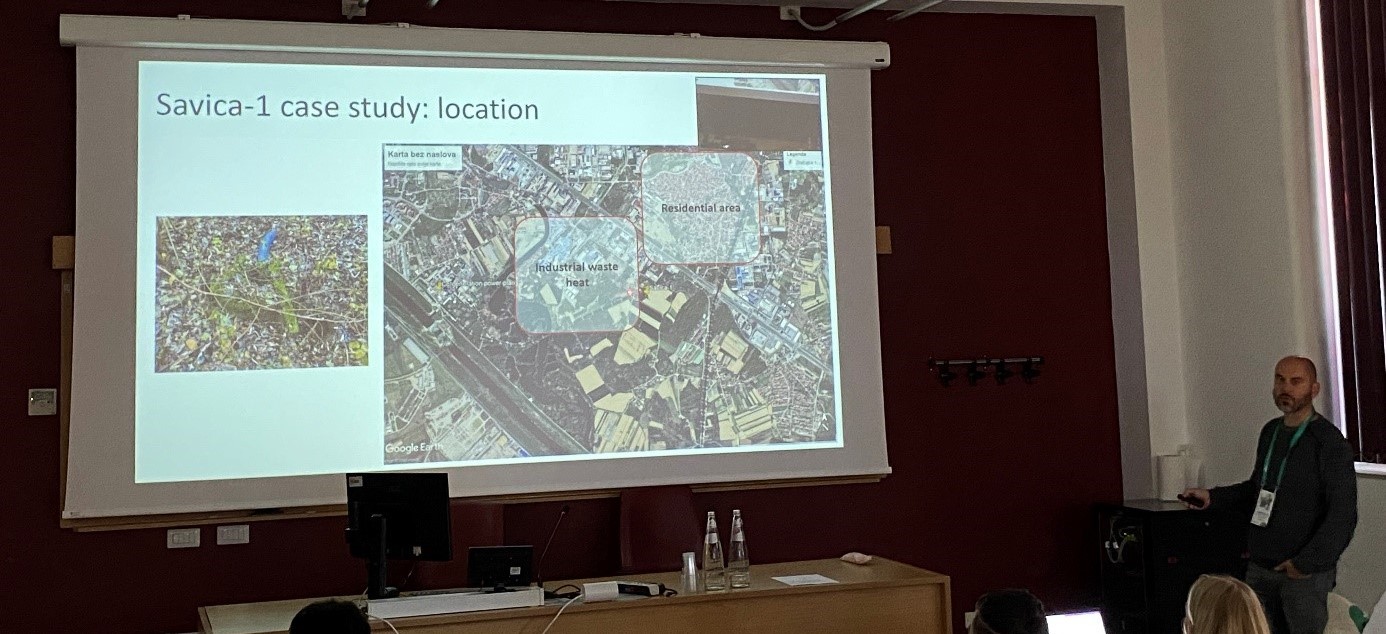As part of the TRANSGEO project (CE0100071) – Revitalization of Abandoned Wells for Geothermal Energy Production, funded by the Interreg Central Europe program (2021–2027), and within its Activity A.2.3. research findings were presented at the 19th Conference on Sustainable Development of Energy, Water and Environment Systems (SDEWES). The conference was held in Rome from September 8 to 12, 2024, gathering scientists to discuss innovations in sustainable development.
Lead author Luka Perković, together with co-authors Tomislav Kurevija and Marija Macenić, presented a paper titled “Systematic Parametrization of Deep Geothermal Closed-loop Borehole Thermal Energy Storage Systems As a Part of the District Heating Networks: Case Study at Savica-1 Well in the City of Zagreb, Croatia.” The paper explores the potential application of closed-loop geothermal systems for decarbonizing district heating networks in Zagreb, with a particular focus on the Savica-1 well as a case study. The main goal of the study is to investigate the potential of using the Savica-1 well as a seasonal thermal energy storage system, connecting industrial waste heat with heating demands during the winter period.
For the analysis of the borehole heat exchanger, simulation modeling was performed using Python and FeFlow software, examining two system configurations with different depths (1800 m and 2200 m) and tube diameters. Simulation results showed that the deeper configuration is more economical in terms of energy consumption and allows greater heat recovery, while reheating with waste heat further increases system efficiency and extends heating duration.
It was concluded that such systems can significantly contribute to the decarbonization of heating networks, with further potential for integrating renewable energy sources to achieve full carbon neutrality.
